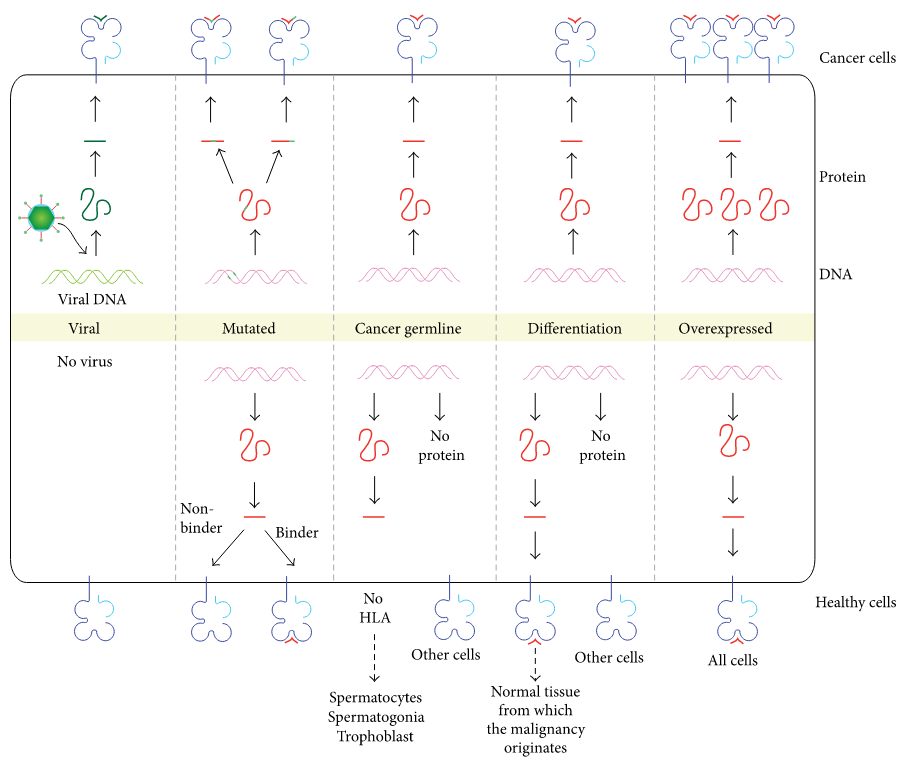Immune Effector as Probe for TAA Identification
The identification of tumor-associated antigen (TAA) is of great significance in cancer diagnosis and immunotherapy. With the highly specialized equipment and experienced expert staff, Creative Biolabs provides a full range of tailored TAA identification services by a series of immunological approaches.
Background of TAA Identification
Cancer has always been one of the most challenging and virulent health problems all over the world up to now. The uncontrolled tumor cell growth and lack of effective early diagnosis are major causes of high morbidity and mortality. The proposal of cancer immune surveillance in 1957 laid the foundation for cancer immunotherapy, an effective and promising therapy for various cancer treatment in recent years. TAA, a useful tumor marker expressed by tumor cells and causing anti-tumor immunity, is the premise of cancer immunotherapy. Some TAAs have been identified and well-characterized, such as MUC-1, carcinoembryonic antigen, alpha-fetoprotein, but there are still quantities of TAAs to be explored and revealed.
Immune effectors are the products of immune reaction between the immune system and antigens, such as antibodies and effector T cells, both of which can be utilized as probes for TAA discovery and identification. As a senior biotech company dedicated to cancer immunotherapy, Creative Biolabs is experienced in providing high-quality immune effector-based TAA identification services for worldwide customers.
T-Cell Expression Cloning
T cell or T lymphocyte, an important component of the immune system as well as the main effector of cellular immunity, plays a significant action in cell killing, antibodies production by B cell, antigens presentation, cytokines release, etc. One of the mechanisms of cancer immunotherapy is to enhance TAA specific T cell immune response to induce tumor cell killing, of which tumor-specific cytotoxic T lymphocytes are critical effector cells in the recognition and killing of cancer cells. Therefore, various T lymphocyte clones isolated from the blood or tumors of cancer patients to identify can be utilized for TAA identification.
Added by comprehensive technology platforms, scientists in Creative Biolabs assist our customers in TAA analysis and identification by the approach of T-cell expression cloning if the blood or tumor samples of cancer patients are provided.
 Fig. 1 Tumor antigens recognized by cytolytic T lymphocytes.1
Fig. 1 Tumor antigens recognized by cytolytic T lymphocytes.1
Engaged in antibody research and service for decades, Creative Biolabs has gained significant knowledge and rich experience in providing comprehensive TAA discovery and identification services for a variety of cancers. Please feel free to contact us for more detailed communications and information.
References
- Vigneron, N. Human Tumor Antigens and Cancer Immunotherapy. BioMed Research International. 2015, 2015: 948501. Distributed under Open Access license CC BY 3.0, without modification.
For Research Use Only.
